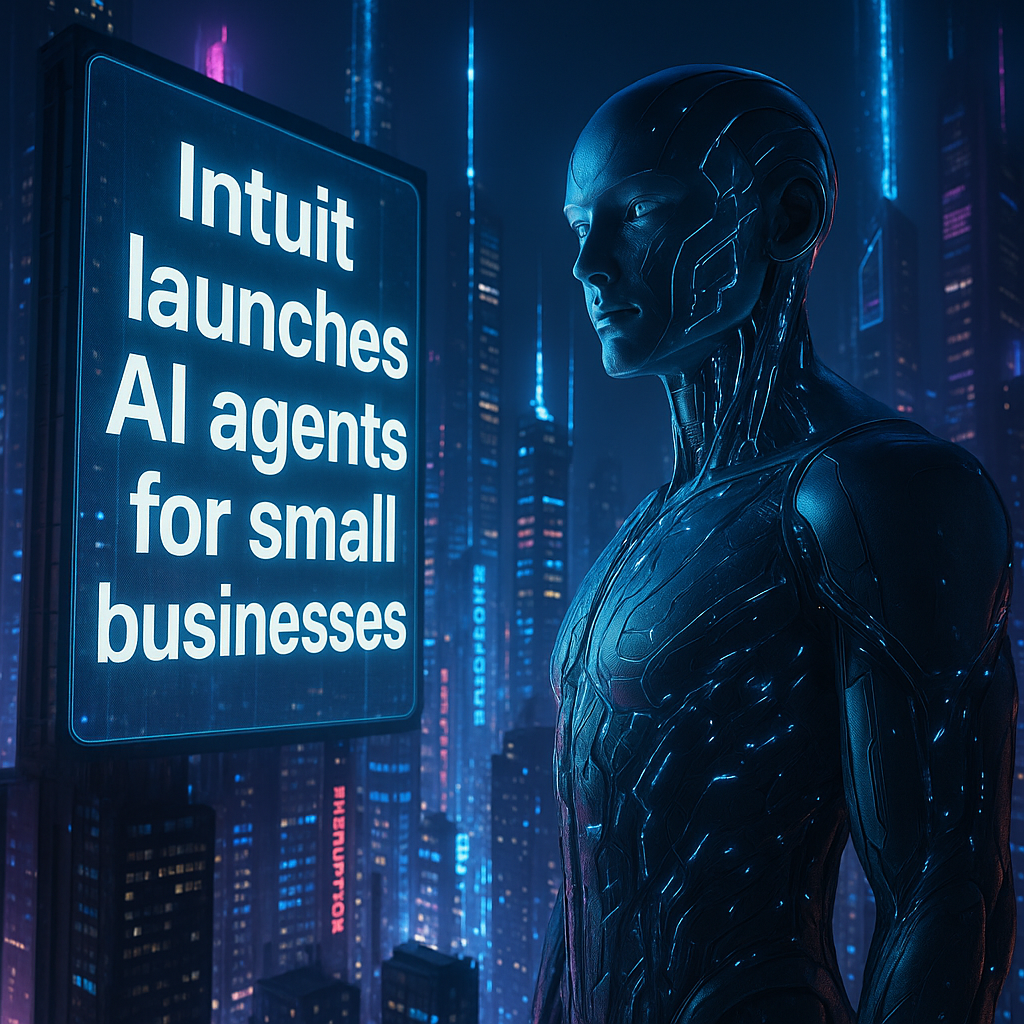
This Week in AI: Intuit Rolls out AI Agents to SMBs
# The AI Revolution: Transforming Small Business and Beyond
In the current landscape of rapidly evolving technology, one point is indisputable: Artificial Intelligence (AI) is no longer a futuristic concept—it’s a present-day reality reshaping industries and societies. AI innovations are front and center, leading to groundbreaking shifts in how small and medium-sized businesses (SMBs) operate, and Intuit is one of the key players driving this transformation. With a significant investment in AI tools and resources, Intuit is not merely keeping pace but accelerating its delivery of enhanced AI experiences designed to streamline financial processes for SMBs.
### The Personal Experience: Revolutionizing Financial Management
Intuit is pioneering the introduction of AI agents across its product suite, which includes renowned platforms like TurboTax, Credit Karma, QuickBooks, and Mailchimp. By enhancing its Generative AI Operating System, Intuit is rolling out AI-driven tools that seamlessly automate accounts receivable and payable processes in QuickBooks Online. These AI agents are also configured to update U.S. and state tax codes within TurboTax effectively, with human experts in line to review these automated updates for the 2026 tax season.
The shift to AI agents is more than just a technological upgrade; it’s a profound change in how businesses manage their financial tasks. By offloading routine yet critical activities to AI, businesses can redirect their focus towards strategic growth and competitive positioning, saving both time and resources. As Intuit plans to extend these capabilities to automate payments, finance, project management, and accounting functions, SMBs find themselves empowered like never before.
### A Surge in Voice AI Investment
The integration of AI doesn’t stop at financial tools—voice AI is rapidly gaining momentum as a primary interface, with a staggering $2.1 billion raised by voice AI startups in 2024 alone, reflecting an eightfold increase from the previous year. Voice technology is carving its niche in vital sectors such as healthcare, retail, and food service; it’s said to be surpassing human performance in certain applications.
As Andreessen Horowitz notes, voice AI enables constant customer interactions and manages tasks that were once manpower intensive—like appointment scheduling or handling phone orders. The younger generations, particularly Generation Z, are increasingly adopting voice shopping, with notable engagement statistics showing 30.4% of this group using voice services weekly. This trend indicates a broader shift in consumer behavior and expectations, leading companies across various sectors, from Yum! Brands to Allina Health, to incorporate voice AI solutions.
### The Significance of AI Safety: A New Nonprofit Initiative
While AI advancements are unquestionably beneficial, there are growing concerns about the potential risks associated with its use. Yoshua Bengio, a prominent figure in the AI sector, has addressed these concerns by establishing LawZero, an AI safety research nonprofit. Highlighting the potential of AI technology to cause unintentional harm to humanity, LawZero aims to mitigate risks linked with “frontier AI models” that might exhibit dangerous behavior or misalign with human goals.
Funded with $30 million from distinguished supporters like the Future of Life Institute and notable figures including Skype Co-founder Jaan Tallinn, LawZero’s mission underscores the necessity of responsible AI development and deployment, promising to safeguard humanity while fostering technological progress.
### Learning Moment: AI Tools as Business Enablers
For small businesses, the entry barriers posed by high development costs and resource constraints can be formidable. AI-powered coding tools are changing this narrative once and for all. Tools like GitHub Copilot and Replit Ghostwriter enable small teams to achieve tasks that previously required a full engineering team. By applying AI, businesses can reduce costs, accelerate product development timelines, and innovate with agility.
The story of DualEntry, an SMB originally quoted $100 million to build an enterprise resource planning (ERP) system like NetSuite, serves as a powerful example. By leveraging AI tools such as ChatGPT and Cursor, and working with a compact team of just 11 developers, DualEntry developed their ERP solution within nine months. As co-founder Santiago Nestares aptly noted, “AI is the great equalizer.” This assertion captures the essence of AI’s transformative power, granting small enterprises the opportunity to engage in the competitive realm traditionally dominated by larger firms.
### Emotional Closer: The Future of AI
As AI continues to weave itself into the fabric of our businesses and daily lives, it’s crucial to ask ourselves: What steps should we take to maximize its potential while safeguarding our communities? How can small businesses harness AI innovations to foster growth and sustainability in their operations? The evolution of AI offers both remarkable opportunities and profound challenges, urging us to proceed with intention and care.
In exploring these pressing questions, dialogue and collaboration become critical. By actively engaging with AI developments, observing industry shifts, and integrating trailblazing tools within our own work, we each stand to contribute to a future where AI serves the greater good, enhancing human capabilities in the most meaningful ways possible.


